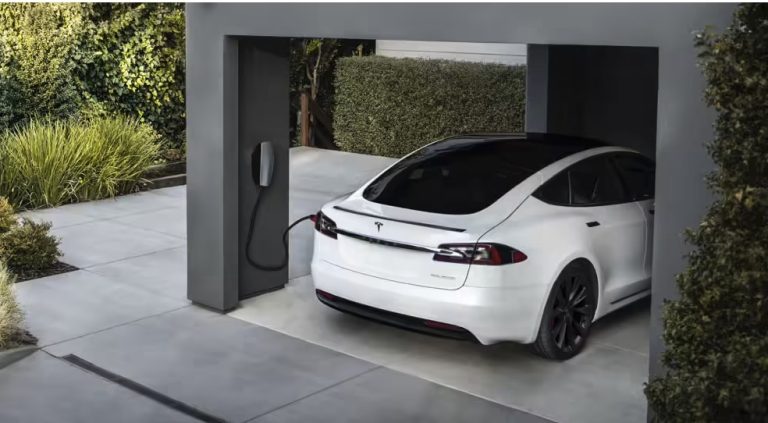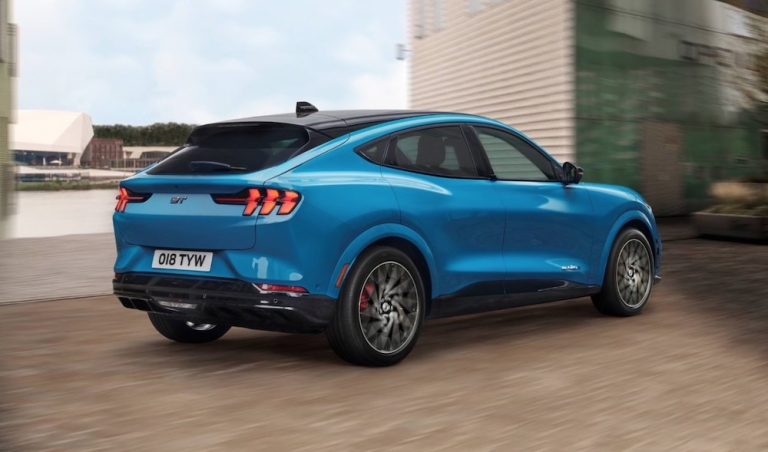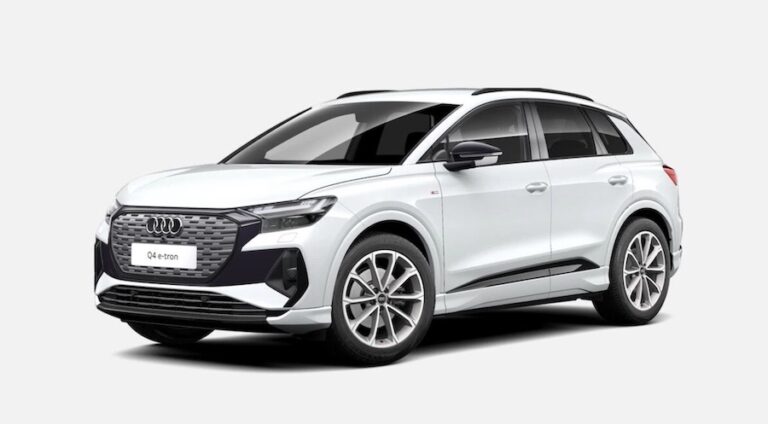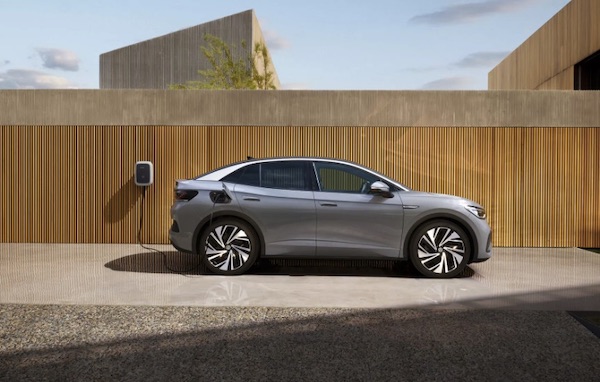Electric Cars: The Basics
For those of you new to zero-emission electric driving, we recommend a read of the following articles:
Sign up to the e-zoomed Electric Living newsletter
The All-Electric Audi e-tron GT Saloon
Audi AG, a Bavaria (Germany) based luxury automotive manufacturer is a wholly owned subsidiary of Volkswagen AG, the Germany automotive group. Volkswagen AG is one of the leading automotive companies in the global electric vehicle (EV) industry. Volkswagen has committed to an investment up to Euro 30 billion by 2023. It aims to sell 3 million electric vehicles by 2025 and launch up to 70 new EV models over the next 10 years.
With the launch of its electric vehicle ID. Family, VW is fast cementing a dominant position is to become the world’s largest electric vehicle manufacturer by 2028, with the automotive behemoth planning to manufacturer 22 million electric vehicles. The Audi all-electric e-tron portfolio includes:
- Audi SQ8 e-tron Sportback
- Audi SQ8 e-tron SUV
- Audi Q8 e-tron SUV
- Audi Q8 e-tron Sportback
- Audi Q4 e-tron SUV
- Audi e-tron S Sportback
- Audi e-tron S SUV
- Audi e-tron GT
- Audi e-tron SUV
- Audi e-tron Sportback
- Audi RS e-tron GT
- Audi Q4 e-tron Sportback
The Audi e-tron GT concept electric vehicle (EV) was shown in 2018 in Los Angeles. Images of the production model were released in late 2020. The EV shares a lot in common with the all-electric Porsche Taycan (Porsche is also owned by the Volkswagen Group). The Audi e-tron GT pure electric saloon is manufactured in Germany. The battery-electric vehicle (BEV) has been on sale on since March 2021.
If you are seeking high performance zero-emission electric driving, few models can deliver as well as the pure electric Audi e-tron GT coupé styled saloon. The electric vehicle (EV) can achieve 0-100 km/h in 4.1 seconds. Impressive nevertheless, but more so given the weight of the electric vehicle, to include the onboard EV battery (2,254 kg). The EV has a top speed up to 245 km/h , and can deliver up to 630 Nm torque. Do keep in mind that one of the benefits of electric driving is the access to instant torque! All-wheel drive is available as standard for this EV.
The e-tron GT Saloon also offers an impressive pure electric range. The electric car has a 93.4 kWh (800-volt lithium-ion) onboard EV battery with a claimed zero-emission electric range up to 479 km (WLTP). Bottom-line enough EV range for most driving needs, to include, longer distance trips on the motorway. The electric car also benefits from regenerative braking.
The EV offers DC charging capability up to 270 kW (5% to 80%: 23 minutes). Put another way: for every 5 minutes of DC charging, the range available increases by 100 km. For those fortunate enough to have three-phase power supply at home, the EV can be fully charged in 9 hours and 30 minutes.
For the rest of us with single-phase power supply, it will take 13 hours 30 minutes to fully charge the EV. We at e-zoomed encourage charging an electric car overnight, when the tariff rates are cheaper. We also encourage using green energy for EV charging.
In terms of practicality, let’s be honest, you are not buying this EV for its interior cabin space or boot space. Having said that, the four-door interior cabin space is what you would expect from a high performance car, and the boot space on offer is 405 L.
Of course, given the premium price tag, the interior quality, technology and equipment level is very good, to include: Audi pre-sense front, parking system plus, cruise control with speed limiter, reversing camera, lane departure warning and more. For an additional payment, one can also get the Head-up Display.
Also as standard are the: MMI Navigation Plus with MMI Touch (12.3” virtual cockpit display or the central 10.1” MMI touch display), Audi smartphone interface, Audi phone box with wireless charging etc.
Bottom-line, electric driving is good for the environment and the wallet!
| PROS | CONS |
|---|---|
| Excellent driving performance | Expensive. Cheaper EV saloons available in the market |
| DC charging up to 270 kW | Limited rear-view visibility and rear headroom |
| Large EV battery and good pure electric range | Range inferior to Tesla |
The All-Electric Audi e-tron GT Saloon (credit: Audi)
| At A Glance | |
|---|---|
| EV Type: | Battery-Electric Vehicle (BEV) |
| Body Type: | Saloon |
| Engine: | Electric |
| Available In Ireland: | Yes |
| Variants (1 Option) |
|---|
| Audi e-tron GT quattro (from € 103,890) |
| EV Battery & Emissions | |
|---|---|
| EV Battery Type: | Lithium-ion |
| EV Battery Capacity: | Available in one battery size: 93.4 kWh |
| Charging: | 270 kW DC Rapid Charging (5%-80%: 23 mins). Onboard charger: 11 kW AC (0% – 100%: 9 hrs 30 mins) |
| Charge Port: | Type 2 |
| EV Cable Type: | Type 2 |
| Tailpipe Emissions: | 0g (CO2/km) |
| Battery Warranty: | 8 years or 160,000 km |
| Average Cost Of Residential Charging | |
|---|---|
| Battery net capacity: 16.7 kWh | € 4.00 |
| Battery net capacity: 30.0 kWh | € 7.19 |
| Battery net capacity: 39.2 kWh | € 9.39 |
| Battery net capacity: 45.0 kWh | € 10.78 |
| Battery net capacity: 50.0 kWh | € 11.98 |
| Battery net capacity: 64.0 kWh | € 15.34 |
| Battery net capacity: 71.0 kWh | € 17.01 |
| Battery net capacity: 77.0 kWh | € 18.45 |
| Battery net capacity: 90.0 kWh | € 21.57 |
| Battery net capacity: 100.0 kWh | € 23.97 |
- Note 1: The average cost of residential electricity in Ireland varies depending on the region, supplier and type of energy used. An average for Ireland is 23.97 cents/kWh.
- Note 2: Not all EV manufactures make available the data on net EV battery capacity, and in a number of instances the EV battery capacity advertised, does not state if it is gross or net capacity. In general, usable EV battery capacity is between 85% to 95% of the gross available capacity.
| Charging Times (Overview) | |
|---|---|
| Slow charging AC (3 kW – 3.6 kW): | 6 – 12 hours (dependent on size of EV battery & SOC) |
| Fast charging AC (7 kW – 22 kW): | 3 – 8 hours (dependent on size of EV battery & SoC) |
| Rapid charging AC (43 kW): | 0-80%: 20 mins to 60 mins (dependent on size of EV battery & SoC) |
| Rapid charging DC (50 kW+): | 0-80%: 20 mins to 60 mins (dependent on size of EV battery & SoC) |
| Ultra rapid charging DC (150 kW+): | 0-80% : 20 mins to 40 mins (dependent on size of EV battery & SoC) |
| Tesla Supercharger (120 kW – 250 kW): | 0-80%: up to 25 mins (dependent on size of EV battery & SoC) |
- Note 1: SoC: state of charge
| Dimensions | |
|---|---|
| Height (mm): | 1413 |
| Width (mm): | 2158 |
| Length (mm): | 4989 |
| Wheelbase (mm): | 2900 |
| Turning Circle (m): | 11.6 |
| Boot Space (L): | 405 |
| e-tron GT | |
|---|---|
| EV Battery Capacity: | 93.4 kWh |
| Pure Electric Range (WLTP): | 479 km |
| Electric Energy Consumption (kWh/100km): | 21.8 – 19.9 |
| Charging: | 270 kW DC charging (5%-80%: 23 mins). Onboard charger: 11 kW AC (0% – 100%: 9 hrs 30 mins) |
| Top Speed: | 245 km/h |
| 0-100 km/h: | 4.1 seconds |
| Drive: | All-wheel drive (AWD) |
| Electric Motor (kW): | 390 (with boost) |
| Max Power (PS): | 530 (with boost) |
| Torque (Nm): | 630 |
| Transmission: | Automatic |
| Seats: | 4 |
| Doors: | 4 |
| Unladen Weight (kg): | 2,254 |
| Colours: | 8 |
| NCAP Safety Rating: | N/A |
Ireland: EV Market Overview
As is the case in a number of global markets, to include the European Union and the United Kingdom, the sale of electric cars in Ireland is also fast gaining momentum. In fact, in January 2022, battery-electric vehicles (BEVs) and plug-in hybrid electric vehicles (PHEVs), accounted for 21% of all new cars licensed in Ireland. Put another way, more than a fifth of the cars bought in Ireland were either pure electric or a plug-in hybrid electric vehicles.
It is also worth nothing the continued decline in the sale of diesel vehicles in Ireland, as families and businesses migrate to lower tailpipe emission electric vehicles (EVs). Diesel market share has declined from 34.2% in early 2021 to 19.7% in early 2022. We can expect this trend to continue for the forseeable future.
The government has set a target of 936,000 electric vehicles by 2030, with 845,000 to be private passenger cars. This will be approximately a third of the vehicles on roads in Ireland (currently there are 2.8 million vehicles on the road). Like many other governments, Ireland is committed to ending the sale of internal combustion engine (ICE) cars by 2030.
The government is committed to the rapid adoption of electric cars in the country. The Department of Transport has committed €100 million for EV subsidies in 2022 (almost double the commitment in 2021). The grant for private electric vehicles is up to €5,000 on qualifying battery-electric vehicles (BEVs). Plug-in hybrid electric vehicles (PHEVs), do not qualify for the electric vehicle grant.
Ireland: Top Electric Cars
| Top Electric Cars | Type Of EV |
|---|---|
| Tesla Model 3 | Battery-electric vehicle (BEV) |
| Volkswagen ID.3 | Battery-electric vehicle (BEV) |
| Nissan Leaf | Battery-electric vehicle (BEV) |
| Renault Zoe | Battery-electric vehicle (BEV) |
| Volkswagen ID.4 | Battery-electric vehicle (BEV) |
| Hyundai IONIQ 5 | Battery-electric vehicle (BEV) |
| Kia e-Niro | Battery-electric vehicle (BEV) |
| Kia EV6 | Battery-electric vehicle (BEV) |
While e-zoomed uses reasonable efforts to provide accurate and up-to-date information, some of the information provided is gathered from third parties and has not been independently verified by e-zoomed. While the information from the third party sources is believed to be reliable, no warranty, express or implied, is made by e-zoomed regarding the accuracy, adequacy, completeness, legality, reliability or usefulness of any information. This disclaimer applies to both isolated and aggregate uses of this information.





























